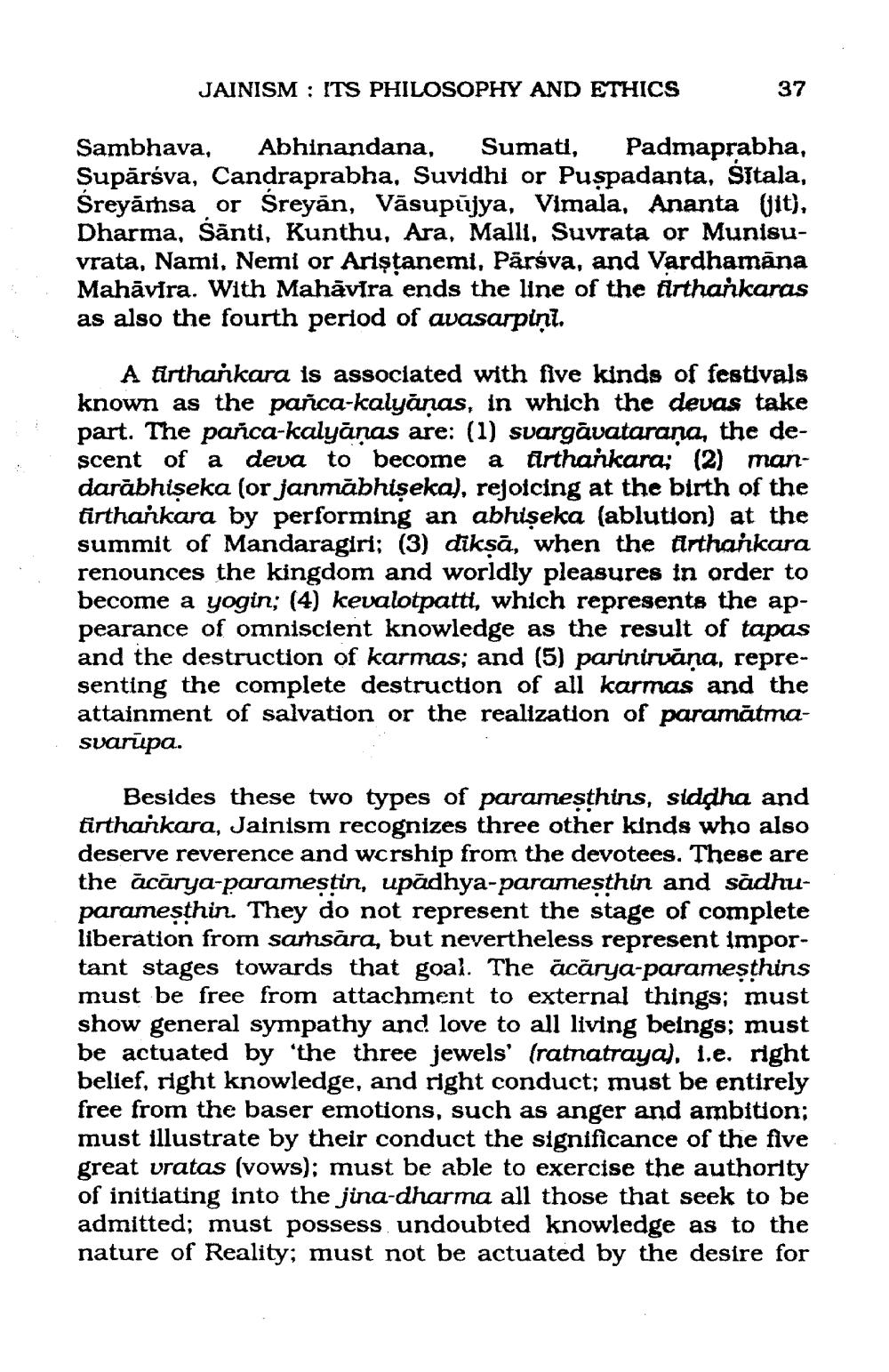________________
JAINISM : ITS PHILOSOPHY AND ETHICS
37
Sambhava, Abhinandana, Sumati, Padmaprabha, Supārsva, Candraprabha, Suvidhi or Puşpadanta, Sitala, Sreyāmsa or Sreyan, Väsupujya, Vimala, Ananta (lit), Dharma, Sänti, Kunthu, Ara, Malli, Suvrata or Munisuvrata, Nami, Nemi or Ariştanemi, Pärsva, and Vardhamana Mahāvira. With Mahavira ends the line of the firthankaras as also the fourth period of avasarpini.
A tirthankara is associated with five kinds of festivals known as the panca-kalyanas, in which the devas take part. The panca-kalyānas are: (1) svargāvataraņa, the descent of a deva to become a Arthankara; (2) mandarābhiseka (or janmabhiseka), rejoicing at the birth of the tirthankara by performing an abhiseka (ablution) at the summit of Mandaragiri; (3) diksā, when the anthankara renounces the kingdom and worldly pleasures in order to become a yogin; (4) kevalotpatti, which represents the appearance of omniscient knowledge as the result of tapas and the destruction of karmas; and (5) parinirvana, representing the complete destruction of all karmas and the attainment of salvation or the realization of paramātmasvarupa.
Besides these two types of paramesthins, siddha and tirthankara, Jainism recognizes three other kinds who also deserve reverence and wership from the devotees. These are the acārya-paramestin, upadhya-paramesthin and sadhuparameșthin. They do not represent the stage of complete liberation from samsara, but nevertheless represent important stages towards that goal. The ācārya-paramesthins must be free from attachment to external things; must show general sympathy and love to all living beings; must be actuated by the three jewels' (ratnatraya), i.e. right belief, right knowledge, and right conduct; must be entirely free from the baser emotions, such as anger and ambition; must illustrate by their conduct the significance of the five great uratas (vows); must be able to exercise the authority of initiating into the jina-dharma all those that seek to be admitted; must possess undoubted knowledge as to the nature of Reality; must not be actuated by the desire for




